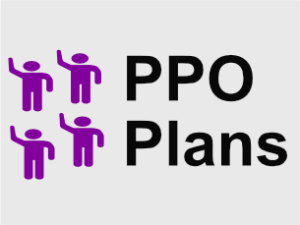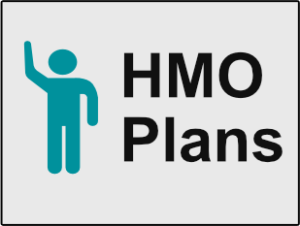Are Medicare Advantage Plans PPO or HMO?
Are you considering a Medicare Advantage plan but feeling overwhelmed by the numerous options available?
This comprehensive guide will help you navigate the potential Medicare Advantage plans, focusing on the two primary types: Health Maintenance Organization (HMO) and Preferred Provider Organization (PPO).
By understanding their key differences, you will likely be able to make an informed decision on which plan best suits your healthcare needs and preferences.
This article will explore the provider choices in HMO and PPO plans, compare their potential costs, delve into the possible prescription drug coverage options, and guide you through the enrollment decision-making process.
Ultimately, this article will help you determine the most suitable plan for your unique situation while taking into account certain factors such as geography and transitioning from Original Medicare.
Key Takeaways
- Exploring the Types of Medicare Advantage Plans will likely involve understanding key differences between HMO and PPO plans.
- When selecting a plan, consider provider networks, possible coverage options, potential costs & out-of-pocket expenses for both HMO and PPO plans.
- Transitioning from Original Medicare to Medicare Advantage may require researching available local plans & enrolling in Part A & B.
Compare Plans in One Step!
Enter Zip Code
Exploring the Types of Medicare Advantage Plans
Medicare Advantage plans, also known as Medicare Part C, could potentially offer an alternative to Original Medicare (Part A and Part B) by providing comprehensive coverage through private insurance companies.
One popular type of Medicare Advantage plan might be the Medicare Advantage HMO, which will likely fall under the category of Health Maintenance Organizations (HMOs).
Some of these plans, along with certain Medicare supplement insurance plans and Preferred Provider Organizations (PPOs), could have their unique benefits and drawbacks to consider.
Understanding their key differences and how they could impact your healthcare experience is necessary for a sound decision.

HMO plans provide a managed care approach with a limited healthcare provider network and comparatively lower costs, requiring referrals for specialist care. PPO plans, on the other hand, provide more flexibility in selecting healthcare providers.
However, higher costs may be incurred for out-of-network care. Both types of plans could offer additional services, such as hearing aids, and vision services, which may not be covered under Original Medicare.
Defining PPO in Medicare Advantage
 Preferred Provider Organization (PPO) plans offer greater flexibility in choosing healthcare providers, including out-of-network care, but may come with higher costs.
Preferred Provider Organization (PPO) plans offer greater flexibility in choosing healthcare providers, including out-of-network care, but may come with higher costs.
PPOs allow you to visit any healthcare provider; however, using in-network providers will typically result in lower out-of-pocket costs.
Conversely, if you decide to see an out-of-network provider, expect to pay more for your care.
PPO Medicare Advantage plans generally cover all the services offered by Original Medicare (Part A and Part B), providing comprehensive Medicare coverage.
Additionally, some PPO plans may provide coverage for:
- Prescription drugs
- Vision
- Hearing
- Dental
With a PPO plan, you could have the freedom to seek care from any provider without needing a referral from a primary care physician, possibly giving you more control over your healthcare decisions.
Understanding HMO in Medicare Advantage
 Health Maintenance Organization (HMO) plans offer a managed care approach with the following features:
Health Maintenance Organization (HMO) plans offer a managed care approach with the following features:
- Limited provider network
- Cost-effectiveness
- Referrals required for specialist care
- Lower out-of-pocket costs compared to PPO plans
- Limit access to healthcare providers within their network, except for medical emergencies.
In an HMO plan, you’ll likely need to choose a primary care physician (PCP) from the plan’s network, who could oversee and coordinate your healthcare needs. To see a specialist, you’ll generally need a referral from your PCP, adding an extra step in the process.
HMO plans may also cover additional covered services such as prescription drugs, vision, hearing, or dental services as well.
Network Nuances: Provider Choices in HMO and PPO
The selection of healthcare providers, including other healthcare providers, could significantly influence the decision between HMO and PPO Medicare Advantage plans.
Your preferred doctors, specialists, and hospitals, and how easily you can access them, might influence your satisfaction with the plan.

This section will compare the provider choices in HMO and PPO plans, highlighting the role of primary care physicians and the flexibility of provider selection.
Understanding these differences could enable you to select a plan that suits your healthcare preferences and possibly guarantee the care you require.
The Role of Primary Care Physician in HMO Plans
In HMO plans, your primary care provider, also known as primary care physician (PCP), plays a central role in managing your healthcare. Your PCP will likely be responsible for:
- Coordinating and managing your overall care
- Providing preventive services
- Diagnosing and treating common illnesses
- Referring you to specialists when necessary
However, HMO plans may have some limitations:
- Your choice of healthcare providers could be limited to those within the plan’s network.
- If you decide to see a provider outside the network, you may have to bear the entire cost, except for emergency care.
- This restriction might be a drawback if you prefer to have more freedom in choosing your healthcare providers.
Flexibility of Choosing Providers in PPO Plans
PPO plans may also offer more flexibility when it comes to choosing healthcare providers, possibly allowing you to:
- Visit both in-network and out-of-network providers without requiring a referral
- Have access to specific doctors or specialists you prefer to see
- Receive healthcare in different locations if you travel frequently
This flexibility could be a significant advantage for individuals who have specific healthcare needs or travel frequently.
However, it’s important to consider the possible costs that come with this flexibility. PPO plans may have higher out-of-pocket costs for out-of-network care compared to in-network care.
If you frequently utilize out-of-network providers, you may end up with higher medical expenses. It’s important to balance the benefits of provider flexibility with the possible costs when considering a PPO plan.
Comparing Costs: HMO vs. PPO Medicare Advantage Plans
Cost will likely be another key factor in choosing between HMO and PPO Medicare Advantage plans. It’s important to consider both the potential monthly premiums and possible out-of-pocket expenses during the year when comparing these plans.
This section will take a closer look at the differences in monthly premiums and out-of-pocket costs between HMO and PPO plans, helping you make a more informed decision about which plan best fits your financial situation and healthcare needs.

When choosing between HMO and PPO plans, it’s essential to consider your budget for medical insurance. If lower monthly premiums are a priority, an HMO plan may be the better option.
However, keep in mind that lower premiums may also come at the cost of more limited provider choices and the need for referrals to see specialists.
Out-of-Pocket Costs and Maximums
Out-of-pocket costs and maximums may vary between HMO and PPO plans, with PPO plans often having higher fees for out-of-network care.
Some of the Medicare Advantage plans may have an annual limit on out-of-pocket expenses, which could be an important factor when considering plans that involve other healthcare providers.
Reviewing the specific details of each plan could be vital to understanding the possible out-of-pocket costs and selecting a plan that matches your healthcare needs and budget.
Prescription Drug Coverage in Medicare Advantage Plans
Prescription drug coverage could be an important aspect of your healthcare plan, and understanding its management within Medicare Advantage plans is key.
Some of the Medicare Advantage plans may include prescription drug coverage as part of their potential offerings, referred to as MAPD (Medicare Advantage Prescription Drug) plans.
There may be differences in prescription drug coverage between HMO and PPO plans.

When selecting a Medicare Advantage plan, it’s essential to review the specific drug coverage that might be offered by the plan and ensure it aligns with your medication needs.
This could help you avoid unexpected out-of-pocket expenses and possibly ensure you have access to the medications you require.
Enrollment Decisions: HMO or PPO?
Now that you understand the differences between HMO and PPO Medicare Advantage plans, you can make a sound decision about the right plan for you.
Considering some of the potential factors and weighing the pros and cons of each plan will likely equip you to choose a Medicare Advantage plan that meets your healthcare needs and fits within your financial constraints.
Assessing Your Health Care Provider Preferences
Before deciding on an HMO or PPO plan, it’s crucial to consider your preferred healthcare providers and whether they are in-network for either plan type.
If a specific doctor, specialist, or hospital is essential to you, you’ll want to ensure they are part of the plan’s network before enrolling.

Remember that HMO plans might have more restrictive networks compared to PPO plans. If having the flexibility to see a variety of healthcare providers is a priority, a PPO plan may be the better choice.
On the other hand, if you’re comfortable with a more limited network and the potential need for referrals, an HMO plan may be a more cost-effective option.
Evaluating Your Medical Insurance Budget
Another possible factor to consider when choosing between HMO and PPO plans is your budget for medical insurance.
This may not only include monthly premiums but also potential out-of-pocket costs such as deductibles, copayments, and coinsurance.
When evaluating your medical insurance budget, consider the average monthly premiums and out-of-pocket expenses for both HMO and PPO plans. Keep in mind that while HMO plans generally have lower monthly premiums, they may also have more limited provider choices and require referrals for specialist care.
Conversely, PPO plans offer more flexibility in provider selection but may come with higher costs. By carefully assessing your financial situation, you may choose a plan that could provide the healthcare coverage you need at a price you can afford.
The Impact of Geography: Availability of Medicare Plans
The availability of Medicare Advantage plans may vary depending on your geographic location. Some states, such as Alaska, Michigan, and New Jersey might have a higher number of available plans, while others, like Washington, Kansas, Maine, Montana, and New Hampshire, may offer fewer options.
Researching the Medicare Advantage plans available in your area and considering how their availability may impact your decision between HMO and PPO options is important.
Be sure to review each plan’s details, including provider networks and coverage options, to select the plan that best meets your healthcare needs and preferences.
Transitioning from Original Medicare to Medicare Advantage
If you’re currently enrolled in Original Medicare (Part A and Part B) and considering a switch to a Medicare Advantage plan, it’s important to understand the process and requirements for transitioning.
You can transition from Original Medicare to a Medicare Advantage plan during the open enrollment period, which typically runs from October 15th to December 7th annually. If you need assistance, you can call 1-833-641-4938 (TTY 711), Mon-Fri 8 am-9 pm EST. One of our licensed agents will be able to assist you.
Before making the switch, ensure that you’re enrolled in Medicare Part A and Part B. Carefully review the details of the Medicare Advantage plans available in your area and weigh the pros and cons of HMO and PPO options.
Potential factors such as provider networks, coverage options, and costs could equip you to decide transition to a Medicare Advantage plan.
Summary
This comprehensive guide has explored some of the key differences between HMO and PPO Medicare Advantage plans, which could help you understand the various factors to consider when making an informed decision about your healthcare coverage.
By assessing your healthcare provider preferences, evaluating your medical insurance budget, and considering the impact of geography on plan availability, you may choose the Medicare Advantage plan that best meets your unique needs and preferences.
Remember, choosing the right Medicare Advantage plan is a crucial decision that could impact your healthcare experience for years to come.
By taking the time to research and compare HMO and PPO options, you’ll likely be well-equipped to make a confident choice and ensure that your healthcare needs are met.
Frequently Asked Questions
→ Is a Medicare Advantage Plan the same as a PPO?
A PPO is a type of Medicare Advantage Plan, which could offer some of the same benefits as Original Medicare but may come with different rules, restrictions, and costs. With a PPO plan, you will likely be able to access network doctors, specialists, hospitals, and other healthcare providers.
→ What are 4 types of Medicare Advantage plans?
Medicare Advantage Plans include Health Maintenance Organization (HMO) plans, Preferred Provider Organization (PPO) plans, Private Fee-for-Service (PFFS) plans, and Special Needs plans (SNPs).
→ Is it better to have an HMO or PPO Medicare plan?
HMO plans might offer lower monthly premiums and could potentially require the use of doctors in the plan’s network, while some PPO plans may have higher monthly premiums but could allow for more flexibility to visit out-of-network providers.
Depending on your needs, an HMO may be a more budget-friendly choice, while a PPO may offer more freedom.
→ What is the biggest advantage of Medicare Advantage?
Some of the Medicare Advantage plans may offer reduced expenses due to deductibles, copayments, and out-of-network care, and have a broad range of choices with provider networks, prior authorization, and access to Medigap coverage.
Furthermore, you could have a wider range of choices for doctors and medical offices than you would with Original Medicare.
→ What are the main differences between HMO and PPO Medicare Advantage plans?
Some of the HMO Medicare Advantage plans may offer a managed care approach that could come with a limited network and lower costs, whereas some of the PPO plans may provide more flexibility but may also include higher out-of-network costs.

ZRN Health & Financial Services, LLC, a Texas limited liability company
Russell Noga is the CEO of ZRN Health & Financial Services, and head content editor of several Medicare insurance online publications. He has over 15 years of experience as a licensed Medicare insurance broker helping Medicare beneficiaries learn about Medicare, Medicare Advantage Plans, Medigap insurance, and Medicare Part D prescription drug plans.



